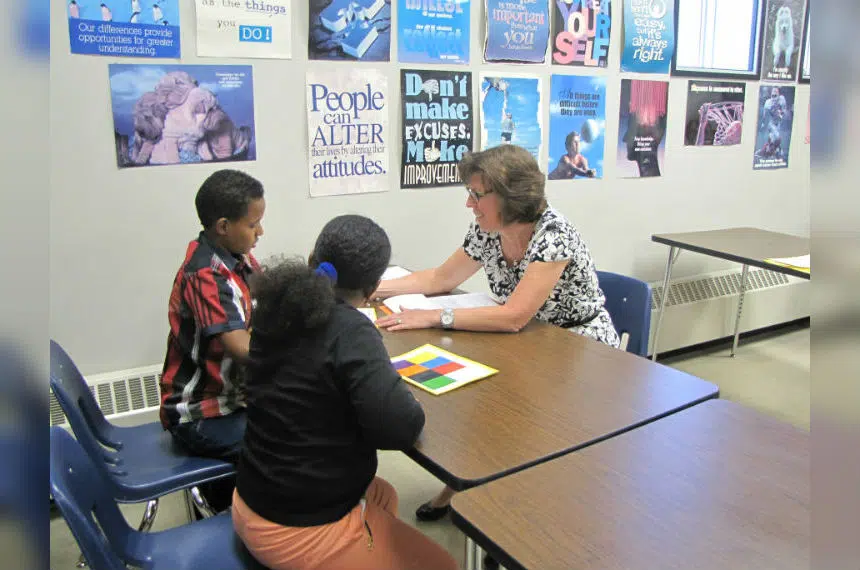Her love for teaching English started in Japan.
Linda Mitchell is the Student Achievement Coordinator with Regina Public Schools, overseeing the English as an Additional Language (EAL) program.
Her journey to that position began after graduating from university and travelling to Asia where she taught for one year. She fell in love with her career path, as she saw the passion in her students willing to learn a new language.
“When I came back here, my passion really went to help supporting those newcomers coming in here because I appreciated all the extra support I got while I was in Japan,” Mitchell said.
After returning home to Saskatchewan, she saw more and more newcomers in the classroom as a Grade 5/6 teacher and decided to go back to university for more education. She eventually joined the Newcomer Welcome Centre when it opened in 2009 creating a “one-stop shop” for immigrants, helping them with education, healthcare, employment and everything they need upon arrival to get settled.
“It’s rewarding to me to see the excitement in the students’ and their parents’ eyes when they get to learn another language — when they get to learn about another culture,” Mitchell said.
In order to teach immigrants a new language, Mitchell said she finds herself learning about the students, where they come from and their culture. That’s often through everything from movies and books to National Geographic.
There are 121 different languages represented by newcomers in Regina public schools, too many to learn herself. While each newcomer varies in how fluent they are in English, teaching a student that doesn’t know a word of English can be a challenge.
Mitchell explained there are strategies to connect with those students, which often come in a visual form.
“You can communicate with people through gestures and pictures and things like that,” Mitchell said.
She said not all students learn best through speaking, whether they are a newcomer or born in Canada. Some are better learners through visual and hands-on experiences, pointing to people who teach themselves through YouTube videos as an example.
Mitchell gave another example of a Grade 7 Russian boy who came to Regina speaking almost no English when she met him at the Newcomer Welcome Centre one September.
By that March, his English was by no means perfect but she said he had gone from a total non-English speaker to being comfortable enough to support others.
“He was actually interpreting for a family that had just come from Russia,” Mitchell said.
Becoming fluent in speaking English is not the only measure of success for the EAL program. Mitchell explained schools have not only become increasingly diverse, she sees more students opening their eyes to the world, wanting to travel and experience different cultures.
Mitchell explained some newcomers who arrive in Canada at the age of 14 or 15 might spend an extra year in high school. Whether students excel quickly or take years to become fluent in English, it’s the end result that is the most rewarding part of her job.
“To see the growth that some of those students have taken is really heartwarming to see them eventually walk across the stage and graduate.”











